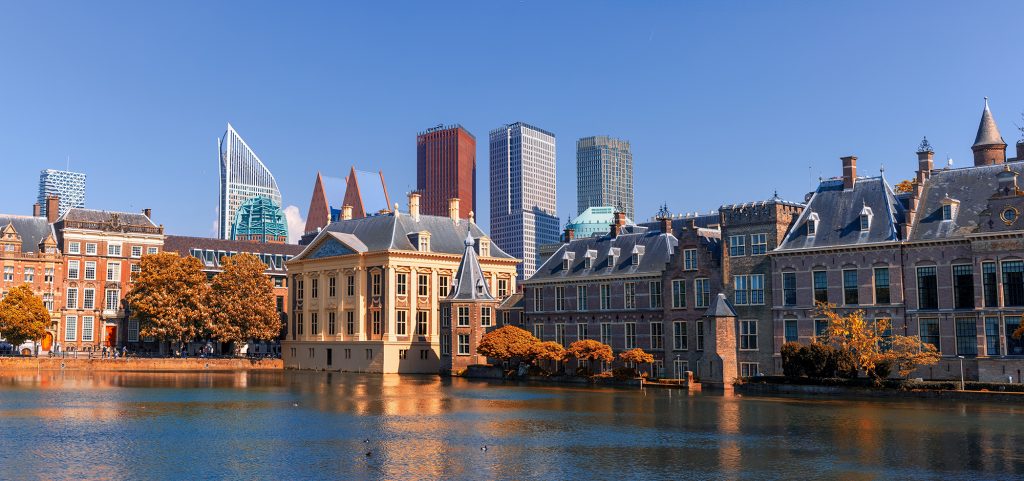Goodbye to fossil fuel advertising?

The future of fossil fuels may, paradoxically, be in the past. The emissions they release into the atmosphere, promoting climate change, have put them, for years, in the spotlight. Global warming has ceased to be a threat and has become a reality – loss of species and ecosystems, natural disasters, mass migrations, etc. – has led to this type of non-renewable energy to be penalized.
And among those affected are vehicles powered by polluting fuel.In addition to the traffic restrictions, a further measure is now being added: banning advertisements that feature this polluting energy. It was signed in the Netherlands and comes after a long fight against this type of product. The legislation, which will come into force on January 1, 2025 and will be carried out in the city of The Hague, is not limited to advertising messages from companies dedicated to the extraction, processing and marketing of fossil fuels. It will also eliminate claims in public spaces about products and services with high emissions. Among them, air travel, cruises or cars that use this type of fuel. The decision follows the path started in the World Without Fossil Ads campaign. This movement advocates ending this type of commercial messages, in a similar way to what was done with tobacco, another harmful product.
“The Hague wants to be climate neutral by 2030. Therefore, it makes no sense to allow advertising of fossil fuel products,” said Leonie Gerritsen, a councilor for the Party of the Animals, on the issue. It was this party that put the proposal on the table. And now The Hague will carry it out, although it is not the only city on the continent to consider this matter. It will be the first to actually do it, after other cities have tried: the city council of Edinburgh (Scotland) took a similar stance last May, although to a lesser extent, by banning advertising related to fossil fuels on municipal properties.


In the Canadian city of Toronto, a motion is on the table to “restrict false and misleading advertising by oil and gas lobbyists” on public transport. Metropolises such as Graz in Austria have proposed similar measures, in this case without success. And Sheffield City Council in the United Kingdom also does not allow its public billboards to promote these products.
An “important signal” that is being sent to the rest of the world, according to a member of the Campaign, was launched by the Party for the Animals and was taken up by the World Without Fossil Ads organization. The message is that “we must get rid of our addiction to fossil fuels”, the activist argued. “The Hague wants to be climate neutral by 2030, which is why it is not appropriate to allow advertising for fossil fuel products”, she added. For Femke Sleegers, of the Reclame Fossielvrij (Fossil Fuel Free Advertising) collective, this decision could also have a “snowball effect”.
Such a shock wave could reach Spain, where environmental awareness is growing.“We are aware of the ban and even more so of the debate that has taken place beforehand. We work for one of the energy companies that is leading the transformation towards clean energies in the world and this issue is a priority for us, as advertising and communication advisors for top-level executives,” says Andrea Ansareo, from the advertising agency Annie Bonnie. “The new regulation is part of a broader trend that we have seen in several European cities and countries, where measures are being taken to reduce carbon emissions and promote sustainable mobility,” she adds.

“Amsterdam, Paris and now Geneva are among the cities that are implementing restrictions on fossil fuel vehicles. It is a significant step within the efforts to meet the common objectives of the EU and countries committed to sustainability,” says Ansareo, who sees the ban as “consistent,” given the objectives, to reduce emissions and promote other types of cleaner energy.

Advertising is “a lever for social transformation,” argues the expert. “It has a significant influence on consumer decisions and, by limiting the promotion of products that are already being phased out for environmental reasons, the public can be guided towards more sustainable alternatives,” she clarifies. It is also essential, Ansareo points out, to “educate and offer incentives to consumers” so that this ban “is not perceived as an imposition” but “as part of a broader effort to improve quality of life and combat climate change.”
At Annie Bonnie they believe something similar is possible in Spain and other European countries. “Regulations on sustainable mobility are becoming stricter. The pressure to comply with climate commitments and the growing concern about air quality in large cities could lead Spain to adopt this type of measure,” says Ansareo. “The interesting thing,” she notes, “will be to see how the marketing campaigns of car brands adapt and how the electrification of the vehicle fleet will be promoted, an area in which, in Spain, there is still a lot of work to do.”
Banning fossil fuel advertising is nothing new. On June 5, designated as Environment Day, the UN Secretary General, António Guterres stressed this idea: “I urge every country to ban advertising by fossil fuel companies, and I call on media and technology companies to stop accepting fossil fuel advertising.” The Secretary-General also lashed out at the fossil fuel sector. “Billions of dollars have been spent on distorting the truth, misleading the public and sowing doubt,” he said of the fuel lobby, made up of companies he described as “godfathers of climate change,” and their public communications.

In these statements, Guterres asked that “each country” ban the advertising of this industry, while calling on them to invest their profits in the energy transition, comparing it to tobacco or junk food. The step taken by The Hague is intended to be the spark. “Major government investments are needed to counteract the negative effect of fossil advertising,” said Thijs Bouman, associate professor of environmental psychology at the Rijksuniversiteit Groningen, to the Dutch media.
Bouman explained that fossil fuel advertising “undermines climate policy” because it “normalizes and promotes unsustainable behaviors. If fossil fuel advertising is banned, these resources can be put to better use, for example to strengthen sustainable options and facilities such as public transport,” he explained. The Hague could be joined by the municipalities of Zwolle and Tilburg, according to the specialist, who calculated that within four months there would be no more complaints about these products.
He was not the only one to celebrate. The scientific community involved in this historic lawsuit has applauded the step taken by The Hague. Uwe Krüger, a communication scientist at the University of Leipzig, pointed out that an intercontinental flight, a cruise ship or an SUV alone can consume the country’s per capita carbon dioxide budget for an entire year.
“Advertising normalizes the consumption of products that are harmful to the environment, even though we all urgently need to reduce our carbon footprint to keep global warming within tolerable limits,” he concluded, contemplating a future where these fuels are a thing of the past.